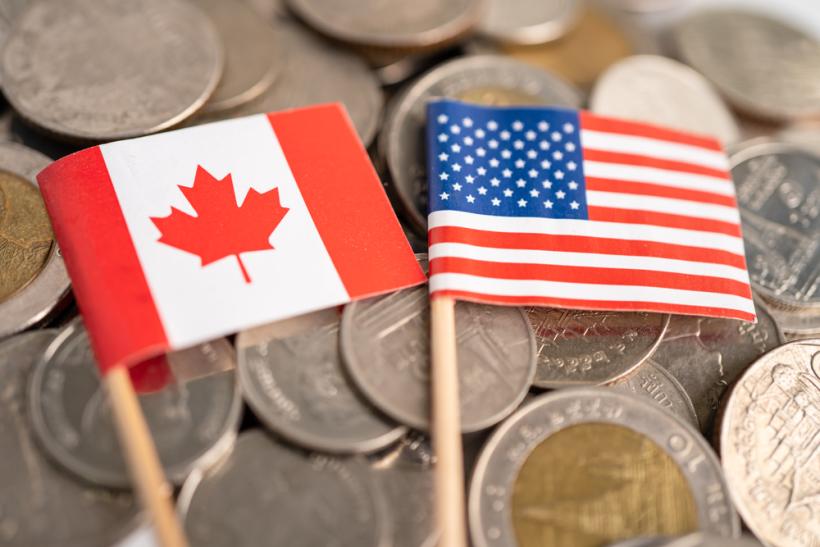
LAST UPDATED: March 19, 2025
As tax season approaches in both Canada and the U.S., many Canadian snowbirds have unique tax considerations they need to take into account.
The complexity of your tax situation will ultimately depend on your specific circumstance and a variety of factors including:
- Where you spend your winters
- How much time you spend outside Canada
- Whether or not you own U.S. real estate
- If you collect rental income related to your snowbird lifestyle
- If you own foreign “property” with a cost of over $100,000 CAD
- If you derive income from U.S. investments
To help you identify the tax issues that may impact your situation, we have prepared the following tax season checklist for snowbirds, which provides an overview of some of the most common tax issues faced by Canadian snowbirds, as well as links to articles on these topics that can provide you with more detailed information.
Please note that tax matters can be quite complex, and this checklist is only an overview. Any tax advice or services you require should be sought from a qualified tax professional, with cross-border tax expertise where required.
Canadian Snowbird Tax Season Checklist:
Are you a U.S. Resident for tax purposes?
Canadian snowbirds who spend extended periods of time in the U.S. risk being considered U.S. residents for tax purposes, which can trigger serious adverse consequences like U.S. tax filing requirements and paying tax in the U.S.
Fortunately, if you know and follow the rules there are a few options that allow snowbirds to avoid or be exempt from being considered a U.S. resident for tax purposes, including the Substantial Presence Test, Closer Connection Exemption (Form 8840) and Canada - U.S. Tax Treaty.
You can learn more about these rules and requirements and how to comply with them in the following articles:
- U.S. Residency Rules Every Canadian Snowbird Must Know
- What Canadian Snowbirds Need to Know About IRS Form 8840
- U.S. Tax Residency Calculator for Canadian Snowbirds
On a side note, it is also important to remember that there are two separate sets of rules Canadians must comply with when counting the number of days they spend in the United States – one for tax purposes and one for immigration purposes.
Do you own U.S. real estate?
If you’re a Canadian snowbird who owns U.S. real estate, you may be subject to taxes in the U.S. and/or Canada if you or your spouse pass away, or if you sell or otherwise dispose of your U.S. real estate in the tax year in question.
Whether or not you owe taxes, how much you owe and which country you owe them in will depend on a number of factors including the structure under which you own your U.S. real estate, any estate planning you have undertaken and other factors.
You can learn more about many of the possible tax implications for snowbirds who own U.S. real estate here:
- Tax Tips for Canadian Snowbirds Who Own U.S. Real Estate
- U.S. Real Estate Ownership Structure Tips for Canadian Snowbirds
Do you have rental income from U.S. real estate?
If you own U.S. real estate and rent it out for part of the year while you’re not using it, you may have to file a U.S. income tax return and pay taxes on the rental income in the U.S.
You’ll also have to report the income in Canada and may have to pay taxes here as well, although in many cases it will be offset by a foreign tax credit.
You can learn more about taxes on rental income from U.S. properties for Canadians here:
Do you have rental income from Canadian real estate?
Many snowbirds rent out their homes in Canada while they are away for the winter to earn extra income and help cover the costs of their snowbird lifestyles.
If you fall into this category, remember that you’ll need to report this rental income on your Canadian tax return and pay any related income tax.
You can learn more at the link below under the Canadians who earn rental income from U.S. real estate section:
Do you own foreign “Property” with a cost of over $100,000 CAD?
Canadians who own certain types of foreign “property” with a total cost of over $100,000 CAD must disclose the property to Canada Revenue Agency (“CRA”).
You can learn more about disclosure requirements and what qualifies a “foreign property” at the link below under the Canadians who own over a certain amount of U.S assets section:
Do you earn income from U.S. investments?
If you earn income from U.S. investments, the income must be included in your Canadian tax return and you may be required to file a U.S. tax return.
You can learn more at the link below under the Canadians who earn income from U.S. investments section:
Are you a dual citizen?
If you are a dual citizen of Canada and the United States, you need to file tax returns in Canada and the U.S., which can be complex. Accordingly, you may want to seek out a tax advisor who specializes in assisting dual citizens to assist you with your tax returns.
You can learn more at the link below under the Dual citizens tax requirements section:
Can you claim a tax credit for your travel medical insurance?
The cost of travel medical insurance can be quite significant, particularly for snowbirds who are older, have pre-existing medical conditions or are going to be travelling for extended periods of time.
Fortunately, Canadians may be eligible for a tax credit that would allow you to recover a portion of the cost of your travel medical insurance.
You can learn more about how to claim a tax credit for your travel medical insurance in the following article from our sister company Snowbird Advisor Insurance:
















